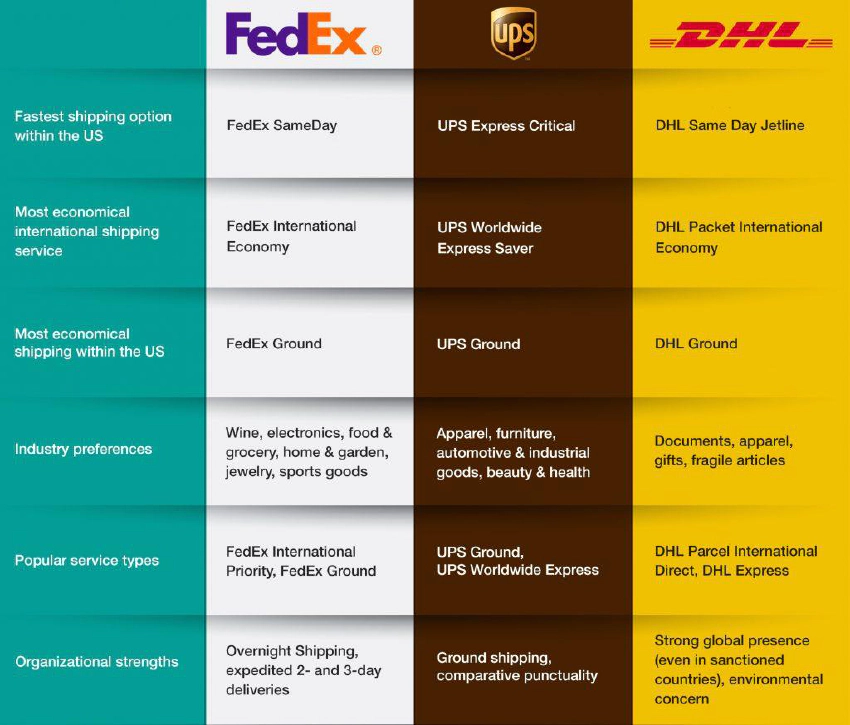
Comparing Logistics Giants Ups Vs Dhl Who Is Bigger
Challenge Dhl Taxes And Save Money On Your Shipment!: All You Need To Know Are you struggling to pay too much in taxes on your shipments? Do you want to learn more about how to save money? This article on “Challenge DHL Taxes and Save Money on Your Shipment!” is the perfect place to start. We’ll provide an introduction to the basics of taxation in freight shipping and how to reduce taxes with the help of [DHL](https://www.<a href=).com/us-en/home.html" target="_blank">DHL Express. You’ll also get tips and tricks on how to lower the cost of your shipment. First, let’s look at taxation. Many countries impose taxes on goods that are imported into their borders.
Challenge Dhl Taxes And Save Money On Your Shipment!: Detailed Information
Depending on the country, these taxes can range from 5-40% of the total value of the shipment. As you can see, these taxes can add up quickly. Fortunately, DHL Express provides a range of services to help you minimize the taxes you’re paying. This includes streamlined paperwork, detailed invoice documents, and full visibility of taxes and fees associated with each shipment. By utilizing these services and other tips, you can make sure you’re saving as much money as possible on your shipment. So, if you’re looking to challenge DHL taxes and save money on your shipments, this article is the perfect place to start.
2. What are DHL Taxes?
DHL Taxes are additional charges applied on your shipment by the shipping company. These taxes are imposed to cover the cost of handling, customs clearance, and other related services. Depending on the type of product and its country of origin, these taxes can add up significantly to your shipping cost. Challenging DHL Taxes can help you save a lot of money on your shipment. You can look for ways to reduce the taxes by understanding the shipping regulations and customs procedures of the destination country.
You can also look for alternative routes and cost effective shipping methods to reduce the taxes. Moreover, it is important to keep accurate records of all the documents related to the shipment such as invoices and packing slips. This will help you in obtaining the correct discounts and avoiding potential disputes regarding taxes and other charges. It is also advisable to use the services of professional consultants who are experienced in international shipping regulations and taxation. They can help you understand the rules and regulations better and take appropriate action to reduce the taxes on your shipment. In conclusion, challenging DHL Taxes can help you save money on your shipment. It is important to be aware of the regulations and procedures regarding taxes and make use of the available resources to get the best possible deal.
3. How to Challenge DHL Taxes
Challenging DHL taxes can help you save money on your shipment. This can be done by carefully examining the taxes you are charged and understanding the regulations behind them. First, you should be aware of the taxes that DHL charges for your shipment, including customs duties and value added taxes. These taxes vary by country and may also depend on the type of product you are shipping. Second, you should research the regulations for the taxes you are being charged.
This could involve looking up the applicable tax laws in your country and consulting a qualified tax expert to ensure you are paying the correct amount. Third, you should be prepared to provide the necessary documentation to support your challenge. This might include providing statements and invoices which prove that the taxes charged are incorrect. Finally, you should be prepared to negotiate with DHL in order to get the best possible outcome. Don’t hesitate to contact the customer service team to discuss the issue, as they may be willing to work with you to get the taxes reduced. By following these steps, you can challenge DHL taxes and save money on your shipment. It may take some effort, but it can be worth it in the end.
4. Pros and Cons of Challenging DHL Taxes
Challenging DHL taxes can be a great way to save money on your shipment. There are both pros and cons to doing so, and it is important to consider both sides before making a decision. One of the biggest pros of challenging DHL taxes is the potential for significant savings. Challenging taxes can help to reduce or even eliminate the amount of taxes that are applied to a shipment, resulting in significant savings. On the other hand, the cons of challenging DHL taxes include the risk of being penalized.
Challenging taxes can be a risky endeavor, and if the challenge is unsuccessful then you may be liable for additional taxes and penalties. Additionally, challenging taxes can be an expensive and time-consuming process. It can take a considerable amount of time and effort to properly prepare the documentation and paperwork for a successful challenge. Overall, challenging DHL taxes can be a great way to save money on your shipment, but it is important to consider the potential risks and costs before making a decision.
5. Conclusion
In conclusion, it is important to note that reducing your shipping costs with DHL can be a great way to save money. By challenging the taxes levied on your shipments, you can make sure that you get the best possible rate. With the right approach and the right knowledge, you can make sure that you pay a fair amount for your goods and still make a profit. It is essential to understand the rules and regulations that govern shipping and taxation before you start challenging taxes. This will ensure that you are able to make the most of any potential savings.
Additionally, it is important to ensure that you are getting the best rate possible from DHL. Finally, it is important to remember that DHL is a business and, as such, will attempt to make a profit from your shipping costs. By challenging the taxes, you can make sure that you are getting the best deal possible. By doing so you will save money on your shipment and ensure that you are getting the best value for your money. Challenging taxes can be a great way to reduce your shipping costs and ensure that you are getting the most bang for your buck. By taking the time to research and understand the taxation rules of your goods, you can make sure that you get the best deal possible from DHL. With the right strategy, you can save money on your shipment and still make a profit.
1. What is the process for adding VAT to a DHL shipment?
DHL shipments can be subject to VAT, or Value Added Tax. It’s important to understand the process for adding VAT to your shipment if you want to save money. Firstly, you need to check if the shipment is subject to VAT. Depending on the country of origin, destination, and the type of goods, different rules may apply. If your shipment is subject to VAT, the rate will be based on the country of destination and the category of the goods you are shipping.
When you know the rate, you can add the VAT to the cost of the shipment. When you are ready to book the shipment, you can inform DHL of the applicable VAT rate. DHL will then add the VAT to the full cost of the shipment. Finally, you can pay the full cost of the shipment, including the applicable VAT rate. Taking the time to understand the process for adding VAT to a DHL shipment will help you save money on your shipment.
2. How do I know if my DHL shipment is subject to VAT?
When sending a shipment with DHL, it is important to know if it is subject to VAT, as this could affect the overall cost of your shipment. VAT is a tax that is applied to goods and services that are shipped from one country to another. If your DHL shipment is subject to VAT, you may need to pay additional taxes before it can be delivered. To find out if your shipment is subject to VAT, you can use DHL’s online tools. You can use DHL’s online tracking tool to see if your shipment is subject to VAT and what the applicable rate is.
Alternatively, you can contact DHL directly to inquire about the VAT status of your shipment. It’s also important to note that some countries may have different VAT rates for certain items, so it’s important to check with DHL to ensure you are getting the correct rate. By taking the time to understand the VAT regulations of your shipment, you can save money on your DHL shipment. Make sure to use the online tools that DHL provides, or to contact them directly, to get the most accurate information on your shipment’s VAT status.
3. How do I calculate the VAT for a DHL shipment?
Calculating the VAT for a DHL shipment can be a tricky process. Thankfully, there are a few steps you can take to ensure that you are paying the correct amount. First, you will need to determine the cost of your shipment, as well as the rate of VAT applicable to the goods or services you will be transporting. You can then calculate the VAT due by multiplying the cost of your shipment by the applicable rate. You should also consider the country of origin and destination when calculating your VAT.
This can affect the rate of VAT you will pay, as different countries set different rates. Finally, you should also be aware that the VAT rate you pay can change depending on the type of shipment you are sending. For example, in some countries, you may be eligible for a lower rate if you are shipping goods for commercial purposes. By taking these steps when calculating the VAT due on your DHL shipment, you can ensure that you are paying the correct amount of tax. This will help you save money on your shipment and ensure that you are compliant with local laws.
4. Is it possible to challenge DHL taxes?
It is possible to challenge DHL taxes and save money on your shipment. Depending on the circumstances of your shipment, you may be able to negotiate reduced or waived taxes with DHL. To do so, you will need to provide evidence that the taxes are not applicable or that the amount is too high. You can also request an appeal or review of your shipment’s DHL taxes. This can be done by providing written documentation to DHL, outlining the reasons for the appeal or review.
DHL will then review the case and decide whether to reduce or waive the taxes. In some cases, DHL may also be willing to negotiate a mutually beneficial payment arrangement. This can be discussed with a DHL customer service representative and you may be able to come to an arrangement which works for both parties. It is also important to note that DHL taxes may vary depending on the country of origin and destination. You should check local regulations and customs laws before submitting your shipment to ensure you comply with all applicable taxes. Challenging DHL taxes is therefore possible and can help you save money on your shipment. With the right evidence and a clear understanding of local regulations, you can negotiate a favourable agreement with DHL.
5. What are the implications of not paying the VAT for a DHL shipment?
When shipping with DHL, businesses must pay Value Added Tax (VAT) on their shipments. Not paying the VAT for DHL shipments can lead to serious penalties and implications. These implications can include significant financial losses due to the increased cost of handling and storage fees, as well as potentially losing the shipment if the VAT is not paid. Furthermore, customers may be held liable for unpaid VAT fees and may also incur additional fines. Fortunately, there are ways to avoid the implications of not paying VAT for DHL shipments.
By researching local tax codes, understanding payment requirements, and familiarizing yourself with relevant taxes and fees, businesses can save money on their shipments while staying in compliance with the law. Additionally, businesses can take advantage of shipping software to manage their taxes and fees and ensure that all taxes are paid in a timely manner. This software can help streamline the process and make it easier to keep track of all taxes and fees associated with DHL shipments. Overall, it is essential for businesses to be aware of the implications of not paying the VAT for DHL shipments and to do their due diligence to stay on top of their taxes and fees. By researching local taxes and utilizing shipping software, businesses can make sure that their shipments are compliant and save money on their shipments.





